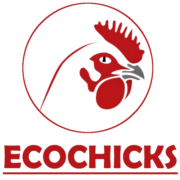Kienyeji poultry farming is a type of small-scale chicken rearing in Kenya that focuses on using local breeds and traditional methods to raise chickens for both meat and egg production. The term “Kienyeji” is a Swahili word that means “local” or “indigenous”.
In Kienyeji poultry farming, the following steps are commonly followed:
- Breed selection: Choose indigenous chicken breeds such as the Kenya High Altitude or the improved Kienyeji breeds that are well adapted to the local environment and are highly resistant to diseases.
- Housing: Build simple and low-cost chicken coops or provide improvised housing such as a fenced area under a tree.
- Feeding: Provide a balanced diet of kitchen waste, insects, and green vegetation to supplement commercial feeds.
- Health management: Implement preventive measures such as regular deworming and vaccination to keep the chickens healthy.
- Marketing: Sell the eggs and meat in local markets or directly to customers.
The benefits of Kienyeji poultry farming include reduced costs, increased food security, and the preservation of traditional knowledge and local breeds. By promoting Kienyeji poultry farming, small-scale farmers in Kenya can improve their livelihoods and contribute to the growth of the country’s poultry industry.


Where are you base and how much are three month old chicks
Hi Nancy, we are located at Wakulima House, KPCU Building, 1st Floor, Haile Selassie Avenue, Nairobi. We currently do not have chicks. Thanks